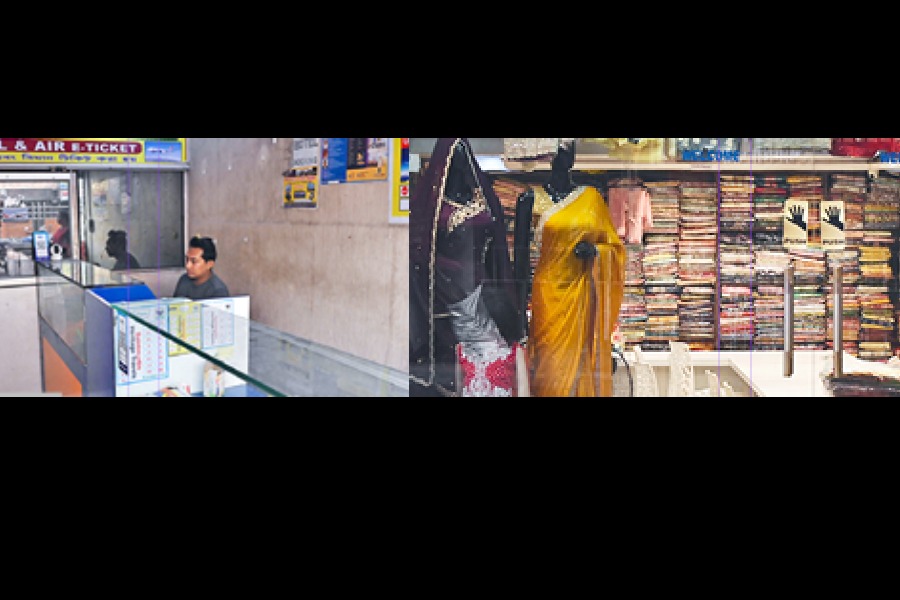- A travel operator has been forced to shut one of his two stores.
- An eatery that would usually buy more than 15 hilsa fish every day now buys only a couple.
- Garment stores said the past few months have been more difficult than those in the immediate aftermath of Covid.
The sharp plunge in the number of Bangladeshi visitors has dealt a knockout punch to a trade hub in the heart of Calcutta.
Marquis Street, Free School Street, Kyd Street, Sudder Street, Rafi Ahmed Kidwai Road and neighbouring areas are together called mini-Bangladesh because of the number of guests from across the border staying in hotels and guest houses there.
Stores selling saris, sherwanis and salwar suits, eateries dishing out delectable Bengali dishes, hotels, guest houses, travel agents, tour operators, currency exchangers and even street vendors — all depend on Bangladeshi patrons.
The turmoil in the neighbouring country and the consequent restrictions on visas imposed by India have severely dented their business. The blow hurts more because it comes at a time when business is expected to peak.
Eid and the winter months would see a surge in Bangladeshi visitors, the traders and hoteliers said. Many spoke of rising debts.
Rahul Deb Samaddar, who runs Star Travel, said he had to shut his outlet on Collin Street last month as he was not able to pay the rent. The hardest part was to leave his employees to fend for themselves.
“I had to pay a monthly rent of ₹45,000. There is hardly any business now. I cannot afford to operate two units. I was forced to lay off some employees. I was left with no other choice but to tell them to look for other jobs,” said Samaddar.
Anyone walking by these roads and lanes can smell the aroma of spices wafting out of the eateries. Earlier, one would have to wait to find a seat. Now, they look desolate.
“We would earlier buy more than 15 hilsa fish daily. Now, we hardly buy more than a couple. We are struggling to find a third of the customers that we earlier did,” said Subir Das, the manager of The Bhoj Company on Free School Street.
The trade hub would earlier be bustling with activity. Everyone would seem to have a purpose and be in a rush. Currency exchangers, eateries, garment retailers, travel operators and even the blink-and-miss mobile recharge stores would be crowded.
The same lanes are now almost deserted, the people inside stores either fidgeting with their phones or blankly looking outside.
A series of travel operators dot the roads. Almost every operator would earlier send multiple buses to the neighbouring country. Now, one bus a day seems like a big deal for them.
The area has around 120 accommodations — hotels and guest houses combined.
“We had a steady flow of Bangladeshi guests throughout the year. Normalcy meant an average occupancy rate of 70 to 80 per cent. It translated to around 30,000 people,” said Montosh Sarkar, an assistant secretary of the Marquis Street-Free School Street Welfare Society, a platform of traders in the area.
“Now, the number must be less than 500. Most rooms at most places are empty,” said Sarkar.
A currency exchanger on Marquis Street would handle seven to eight customers in an hour a month ago. Now, not even one person is coming in an hour.
“Most of my clients would come for medical reasons. They have almost disappeared,” said Iqbal.
More than one trader said the pandemic was more bearable.
Adil Ahmed, owner of Kashmir Shawl Centre on Marquis Street, was one of them. “Covid was devastating. But many Bangladeshis were stuck here. They would keep my boat floating. This is worse,” he said.










